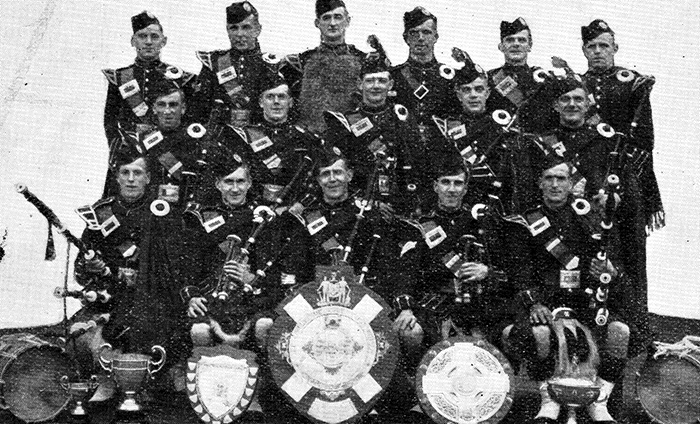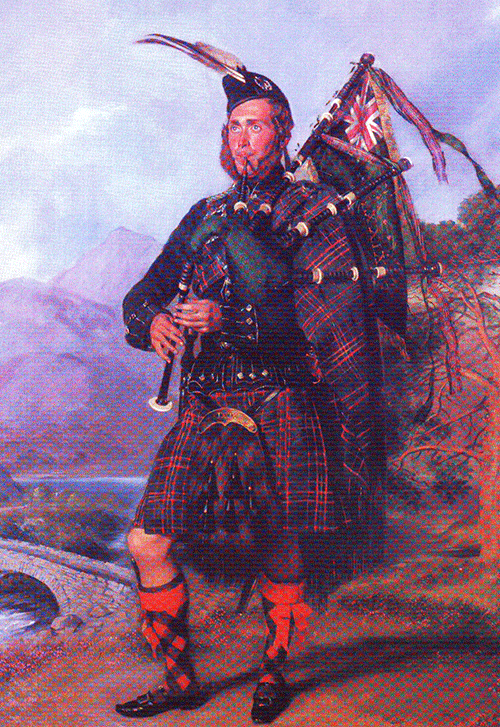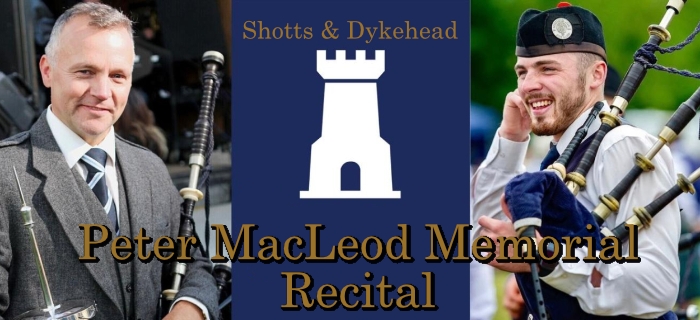
Both of the following items are taken from the the December 1935 ‘Piping and Dancing’ journal. Last month we had an article which described the village of Torphichen in West Lothian, given its extensive teaching programme for piping, as the Borreraig of the 1930s. For those not au fait with piping history, Borreraig on Skye is where the MacCrimmons had their legendary school of piping from the 17th century onwards.
Of the village’s band the magazine reports: The Torphichen Pipe Band was formed by public subscription in 1901. Torphichen, a village with a population of little more than a hundred inhabitants, lies about three miles on the way from Bathgate to Falkirk.
The band’s first Pipe-Major was David Cunningham, and the first Secretary the Rev. George Beale. From the beginning, one of their most enthusiastic supporters was Mr. J. A. Stuart, of Brighthouse, to whom the band was indebted for help in innumerable ways. Pipe-Major Cunningham looked after the band, in every sense of the words, for a quarter of a century, till 1926, when he resigned.
Then Pipe-Major Forrest, at that time only twenty years old, was appointed to take charge, a position he has held ever since. Till then, Pipe-Major Forrest had had a successful career as a solo piper in the amateur competitions. [P/M Forrest was a pupil of John MacDougall Gillies.] Following his appointment as Pipe-Major, he competed with the professionals, and he has been uniformly successful in these contests also. Under his tuition the Band has made great strides, and has taken many prizes at Falkirk and Dunoon.
This Band is particularly noted for the very large number of juvenile players in their ranks. Their full numbers (not shown in photo.) are 30 pipers and 12 drummers. It will not surprise our readers to know that they intend to form a second (juvenile) band from among those who are – to use an old army phrase – surplus to requirements. There is no need to dwell on the enthusiasm that piping engenders in a small community like this, but we feel that others will better understand the strength of this enthusiasm when we inform them that the present secretary, Mr. Alex. Simpson, had no difficulty in raising the relatively large sum of £250 about seven years ago.
A visit to this village in the evenings would make many believe that the School of Piping had been removed from Boreraig. It is really a striking sight to see the number of young pipers that practice assiduously at every point one sees. Truly it can be said they are the band that made Torphichen famous for, otherwise, who would ever have known of it?
The Torphichen band of the time is pictured above with the following names: Front row, l – r: R McGregor, J Hamilton, P/M Forrest, P/Sgt Graham, J Graham; Middle row: W Noble, J Johnston, D Cunningham Jr., John Strathearn, James Strathearn; Back row: J Black, H Clark, A Eadie, A Norrie, A Fleming, W Speedie.
In the same issue we have an intriguing story concerning the famous march, the 79th’s Farewell to Gibraltar. It reads: In last month’s issue, in the article on the Royal Caledonian Schools, there was a name, perhaps the most famous of them all, which I omitted from the list of well-known pipers produced by the Schools. This was Pipe Major Paton of the 79th Cameron Highlanders, the composer of one of the most popular of all pipe tunes, The 79th’s Farwell to Gibraltar.
Little seems to be kown about Paton now. He left the Schools in the ’50s at the age of 14 returning there in 1884 as Pipe Major, which position he held for three or four years. He appears to have been extremely modest about his composition and to have consistently deprecated everybody’s good opinion of it. When questioned about it he just said nothing.

This story is completely at odds with the standard story to the background to the ’79ths’ which is that it was one of the early quicksteps written for a pipe band. It was not composed by a P/M Paton but by Pipe Major John Macdonald of the 79th Cameron Highlanders in June of 1848 when his regiment left Gibraltar for Canada after three years on ‘the Rock’. Macdonald was pipe major of the 79ths from 1840-1849.
There may have been some irony in the title given the delay the regiment encountered in ‘getting off’. Macdonald reputedly taught his pipers the tune on the crossing and they played it on deck when fogbound in the St Lawrence.
In her book ‘Piping Traditions of the North of Scotland,’ Bridget MacKenzie tells us that this John Macdonald also composed the 2/4 march Dornoch Links and describes the 79th’s as ‘the first march ever composed specifically for playing by a pipe band’.
Perhaps Paton’s reticence in discussing the tune is explained by his disinclination to disavow a popular myth giving him credit for it.
[wds id=”11″]

















My grandfather was a member and is in the picture of the band his name was Alfred Norrie and he was a drummer. I have just started digitalising the old photos and I have found lots of the band at various Highland games. Also have found a medal from the Cowl games that I presume was presented to all participants but their is no date. I am not sure exactly when my grandad was a member but would be interested to know.
Interesting article about Torphichen but to suggest it is the band that has made the village known shows a lack of research and a lack of knowledge of the village’s history. Torphichen is a village, although small of historic importance due to its link with the Knights Templar and the Order of At John . William Wallace held his last parliament, prior to the battle of Falkirk, at Torphichen Preceptory and the English King was treated for injury’s received when his horse stood on his foot at the same battle!
Pipe-Major Cameron’s name was James Cameron Paton, born in Perth in 1838. He appears to have died in Staines or Cranford, Middlesex in September 1926. He was Pipe-Major of the 79th between 1868 and 1873.
John MacDonald is recorded in a number of sources including carious websites as being from Tiree and living from 1821 until 1893.